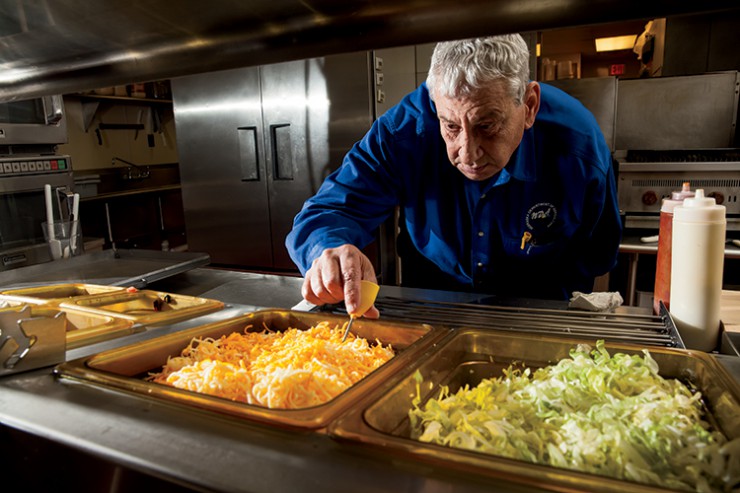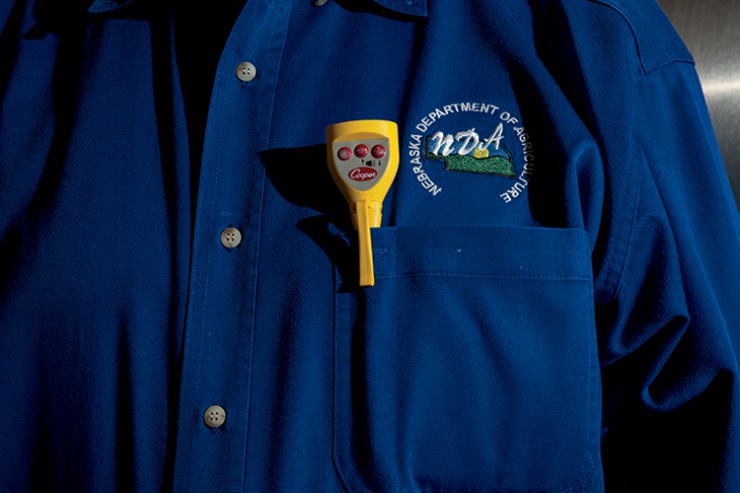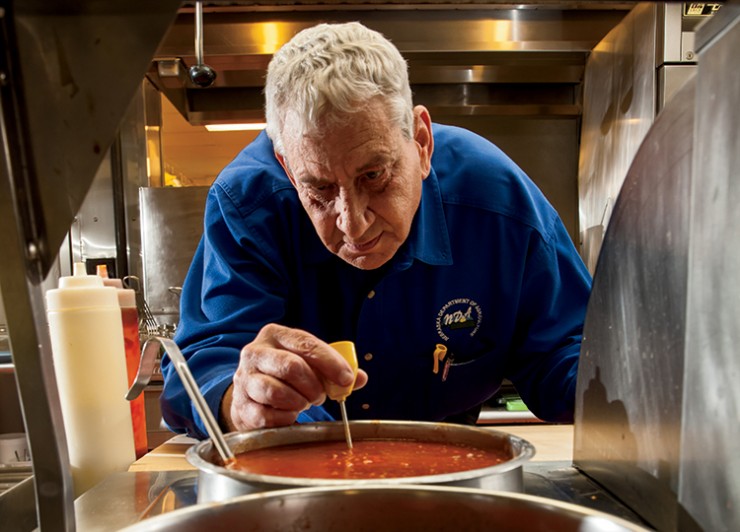Home > Nebraska > Nebraska Farm to Table > Nebraska Puts Food Safety First
Nebraska Puts Food Safety First

If you’re like most Americans, you welcome the opportunity to skip cooking and dish-washing and dine out instead. In fact, according to the National Restaurant Association, two in five Americans say eating at restaurants is an essential part of their lifestyle.
The Nebraska Department of Agriculture’s (NDA) Food Safety & Consumer Protection division has a role in helping ensure those restaurant experiences are good ones. The department is responsible for implementing the laws that require all food establishments be inspected once every six months, or more frequently in some cases by NDA sanitarians.
“Restaurant inspections are important because some – certainly not the majority – operators do not follow safe and sound food protection practices,” says George Hanssen, Food Safety and Consumer Protection administrator for the Nebraska Department of Agriculture. “The inspections can find and correct poor employee practices, food temperature violations and various other things to protect consumers.”

NDA sanitarians check for cleanliness at restaurants, but also conduct several other checks that are important for food safety.
“We’re concerned about food safety and the prevention of foodborne illnesses,” Hanssen says. “We check food temperatures to assure cold foods are kept at 41 degrees or below, and hot foods are kept at 135 degrees or above, once they have been properly prepared. We look for employee practices such as proper hand washing, signs of illnesses, and proper handling of foods with utensils and tongs.”
The sanitarians also complete a food establishment inspection report that indicates whether the restaurant is in or out of compliance with state requirements.

If a restaurant is found to be out of compliance during an inspection, the sanitarian has the authority to do a follow-up inspection, write a hearing notice or immediately close the establishment if necessary. A follow-up inspection may be scheduled for days or weeks later, depending on the severity of the violations found.
“Construction issues will take longer to correct than simple cleaning, for instance,” Hanssen says.
A hearing notice is an official document issued by the Department of Agriculture that lists the violations found and schedules a hearing in front of a hearing officer.
After looking at exhibits presented by the sanitarian and the restaurant operator and hearing their testimonies, the hearing officer may recommend canceling proceedings because corrections were made, probation or suspension of a restaurant’s permit.

An order is then issued by the Director of the Nebraska Department of Agriculture.
According to Hanssen, consumers are often surprised to learn that many things they believe are real problems in restaurants are not.
“For instance, money is not the vehicle to spread disease like consumers believe,” Hanssen says. “Although it gets soiled and money will soil the hands, paper money is treated with a bactericide, and coins are too hard to support bacteria growth, so money isn’t really a good vehicle for spreading illness – which is a good thing given how money travels.
“Probably the most important thing for consumers and food handlers to remember is that frequent hand washing will prevent many, but not all, foodborne illnesses.”



